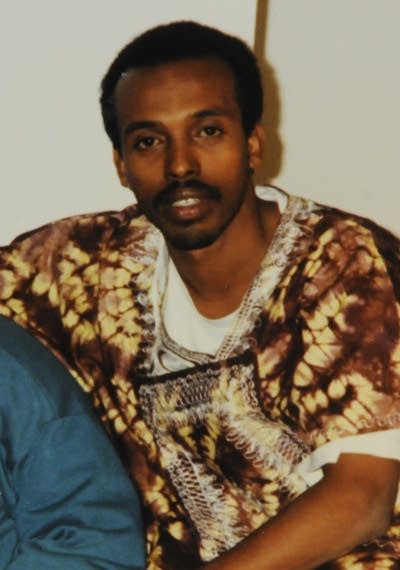Federal trial of Mahamud Said Omar enters second week
Go Deeper.
Create an account or log in to save stories.
Like this?
Thanks for liking this story! We have added it to a list of your favorite stories.

The federal trial of Mahamud Said Omar, the Twin Cities man accused of sending money and Twin Cities recruits to the terrorist group al-Shabab in Somalia, resumes today.
Testimony continues today from Salah Osman Ahmed, a 29-year-old New Brighton man who has admitted that he was "scared to death" when he arrived as a new recruit for al-Shabab.
The trial marks the first time the fighters have publicly spoken at length about their chilling initiation.
Ahmed testified last week that before he left Minnesota for Somalia in 2007, he knew little about the rebel group he had enlisted with. He told the jury he knew the word al-Shabab roughly translated into "young guys." But Ahmed, a graduate of Harding High School in St. Paul, said he didn't understand the group's ideology.
Turn Up Your Support
MPR News helps you turn down the noise and build shared understanding. Turn up your support for this public resource and keep trusted journalism accessible to all.
• More: Minnesota men who joined 'jihad'
Once Ahmed arrived in the war-battered capital of Mogadishu, it didn't take him long to catch on. One of al-Shabab's leaders showed the new recruits from Minnesota a video showing fighters decapitating a man who they said tried to defect.
Ahmed said the purpose of the video was to scare them, and it worked. "This is what will happen to whoever leaves the group," he recalled being told.
But Ahmed and two friends from the Twin Cities escaped from al-Shabab — and lived to tell the story. Kamal Hassan, another early recruit from the Twin Cities, is expected to testify this week.
The three cooperating witnesses for the government have all confessed to traveling to Somalia to fight Ethiopian soldiers who were occupying their country.
"Clearly, they're not the leaders. They're not the ones who organized anything," said attorney Manny Atwal, who represents Hassan. "They were just told, 'Hey, it's your duty. Go over there. This is your country that you're from, and fight the Ethiopians.' And I don't think they thought beyond that."
The young men left at a time when Somalis around the world were outraged at reports that the troops were killing and raping innocent civilians.
How they made it to Somalia is a story in itself.
Federal prosecutors say the first wave of men who left to fight had met secretly at a Minneapolis mosque, in cars and on the second floor of a Davanni's pizza shop, careful to hide their plans from mosque officials and their own families. Ahmed and Abdifatah Yusuf Isse, 28, the two al-Shabab recruits who have testified so far, say a handful of other young men concocted the idea to wage a holy war against the Ethiopians.
Atwal said Hassan is eager to talk about his journey, and how he was recruited.
"There's been bits and pieces about him in the press, and he's never got to tell what happened to him, why he left," Atwal said. "He'll discuss when he was at the mosque, how he left the mosque, left Minnesota, went to Somalia, what happened in Somalia, and his return back to the United States. It's an important story, and it's going to give details that nobody's heard before."
Atwal's client and the two other recruits who have testified have pleaded guilty to providing material support for terrorists. Atwal's client stayed several months longer in Somalia than the other two and is the only one who remains in custody. Prosecutors say Hassan is featured in al-Shabab training and propaganda videos, where he is seen firing an AK-47, encouraging others to join the jihad, and participating in an armed ambush of Ethiopian troops.
Not all of the testimony directly relates to the man on trial. Federal prosecutors have not called Mahamud Omar a mastermind, but say he did play a part.
Isse testified that Omar traveled to Somalia in 2008 and stayed at an al-Shabab safe house with some of the first fighters from Minnesota. The government alleges Omar also helped pay for assault rifles for the recruits and helped steer a second wave of men to al-Shabab.
Omar's attorneys, meanwhile, are trying to chip away at the credibility of the witnesses. They have pointed out that the men have all pled guilty to terror-related charges and are hoping to receive reduced sentences in exchange for their testimony.
So far, the young men have not said that Omar recruited them. Most of the alleged ringleaders they did name in court appear to have gotten away.
Authorities believe those men are in Somalia, possibly still fighting for al-Shabab.
• Follow Laura Yuen on Twitter: http://www.twitter.com/laura_yuen
Dear reader,
Political debates with family or friends can get heated. But what if there was a way to handle them better?
You can learn how to have civil political conversations with our new e-book!
Download our free e-book, Talking Sense: Have Hard Political Conversations, Better, and learn how to talk without the tension.




